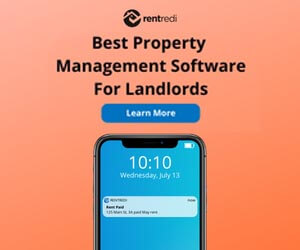
Effective Strategies for Residential Property Management
Managing a residential property, whether it's a cozy studio or a sprawling estate, comes with its own set of challenges and rewards. From maintaining its condition to finding reliable tenants and ensuring smooth operations, the tasks can seem daunting. But fear not! By implementing effective residential property management strategies, you can transform this responsibility into a source of peace of mind and even profit. Let's delve into the key areas to navigate your property management journey like a pro:
Laying the Foundation: Proactive Maintenance Is Key
Prevention is always better than cure, especially when it comes to property upkeep. Here's how to stay ahead of the curve:
- Regular Inspections: Conduct scheduled inspections, both inside and outside, to identify and address minor issues before they escalate into costly repairs.
- Preventative Maintenance: Implement preventative measures like annual HVAC servicing, gutter cleaning, and pest control to minimize potential problems.
- Emergency Preparedness: Formulate a plan for handling emergencies like water leaks, power outages, or appliance malfunctions. This ensures swift action and minimizes damage.
Optimizing Tenant Relations: Building a Win-Win Partnership
Creating positive relationships with your tenants is crucial for a smooth and profitable experience. Here's how to foster trust and collaboration:
- Clear Communication: Establish clear communication channels and respond promptly to tenant inquiries and concerns. Transparency builds trust and fosters a sense of community.
- Responsive Maintenance: Address maintenance requests promptly and efficiently to minimize inconvenience and maintain tenant satisfaction.
- Fair and Consistent Policies: Establish clear and fair rental agreements and house rules, and enforce them consistently to ensure a harmonious living environment.
Mastering the Numbers: Financial Management for Efficiency
Keeping your finances in order is essential for long-term success. Here are some key practices:
- Detailed Budgeting: Create a comprehensive budget outlining projected income (rent), expenses (mortgage, taxes, maintenance), and potential vacancies. Regularly review and adjust as needed.
- Recordkeeping: Maintain meticulous records of all income and expenses related to your property for tax purposes and informed decision-making.
- Strategic Rent Setting: Conduct thorough market research to set a competitive rent that attracts tenants while maximizing your return on investment. Consider offering incentives during slower leasing periods.
Exploring Technology Tools: Streamlining Your Workflow
Embrace technology to simplify tasks and manage your property efficiently:
- Property Management Software: Utilize software solutions designed to streamline tasks like rent collection, maintenance requests, communication, and financial reporting.
- Online Marketplaces: Leverage online platforms like Zillow or Apartments.com to advertise your property to a wider audience and simplify the tenant screening process.
- Mobile Apps: Utilize mobile apps for on-the-go property management, allowing you to respond to tenant inquiries, access financial data, and manage tasks remotely.

Beyond the Basics: Considering Additional Strategies
For seasoned landlords or those seeking diversification, explore these advanced options:
- Hiring a Property Manager: Consider outsourcing management tasks to a professional, especially if you lack time, and expertise, or live far from the property.
- Short-Term Rentals: Explore platforms like Airbnb for short-term rentals in permitted areas. This can offer higher nightly rates but requires more management effort and may not be suitable for all properties.
- Value-Added Services: Offer additional services like laundry facilities, parking rentals, or furnished rentals to attract specific tenants and potentially increase income.
Remember, effective residential property management is a continuous journey. By prioritizing preventative maintenance, fostering positive tenant relationships, managing finances diligently, and embracing technology, you can navigate the challenges and unlock the full potential of your property investment.
This comprehensive guide equips you with valuable strategies and considerations, empowering you to manage your residential property with confidence and achieve your desired outcomes.